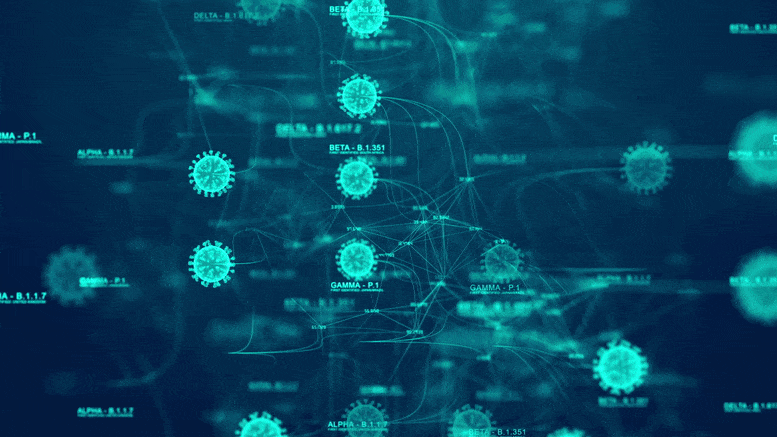Delta-Like COVID-19 Variants Are Most Likely To Increase Pandemic Severity
0 View
Share this Video
- Publish Date:
- 20 November, 2021
- Category:
- Covid
- Video License
- Standard License
- Imported From:
- Youtube
Tags

By Harvard TH Chan School of Public Health Nov 20, 2021
A SARS-CoV-2 variant with traits similar to the Delta variant – improved transmissibility and ability to infect people who have had previous infections/vaccinations – will cause a more severe pandemic with more infections and breakthrough infections/reinfections than variants with either trait alone, according to a mathematical model created by researchers at the Harvard TH Chan School of Public Health.
Their work, published online on Nov. 19, 2021 in the journal Cell, may help researchers and public health officials interpret the meaning of new and existing variants and design tailored public health responses for different scenarios based on a variant’s characteristics.
“So far, evidence of immune escape — the ability of a variant to evade the immune system and cause reinfection or breakthrough infections — has been a red flag,” said Mary Bushman, co-author of the Cell paper and a postdoctoral researcher in the department. Harvard Chan School Epidemiology. “Our findings say it might be more of a yellow flag — this isn’t that big of a deal in and of itself. But when combined with improved portability, it could be a really big deal.”
As the COVID pandemic has progressed, variants of the original wild-type SARS-CoV-2 virus have emerged. Some have quickly become a dominant species and have increased the number of infections, such as the Alpha and Delta variants, while others, such as Beta, failed to take hold or significantly affect the trajectory of the pandemic. To understand the effects that certain factors would have on a pandemic, Bushman created a model that simulates how pandemics, fueled by hypothetical variants, would affect populations using different combinations of masking with physical distancing and vaccinations.
The analysis simulated a SARS-CoV-2 pandemic with several hypothetical variants, including combinations of the two traits: enhanced transmissibility, similar to the Alpha variant; partial immune escape, similar to the Beta variant; improved transmissibility with partial immune escape, similar to the Delta variant; and a variant with neither of these properties. The analysis also took into account how certain variables, such as masking/physical distance or vaccinations, would influence the trajectory of the pandemic. For each of the scenarios, the researchers analyzed the total number of infections and the number/percentage of infections averted by vaccination.
Bushman and their team determined that a variant with only enhanced transmissibility would likely be more dangerous than a variant that could partially evade the immune system. However, a variant with both properties could cause more infections, reinfections and breakthrough infections than a variant with one of the two properties alone.
According to the model, vaccination will also be very beneficial in the case of Delta-like variants, as vaccinations would prevent a greater number of cases potentially causing a more transmissible virus, and because the milder nature of breakthrough infections should significantly reduce overall mortality.
“It’s really important for people to realize that the emergence of variants like Delta makes high vaccination levels all the more important,” said Bill Hanage, associate professor of epidemiology and co-author of the Cell paper. “Even if we can’t eliminate the virus, we can make sure people cope with it with the best preparation, and a more transmissible virus means there will be more infections without vaccination, so more people will benefit.”
Other Harvard Chan School co-authors of the study were Rebecca Kahn, Bradford Taylor and Marc Lipsitch.
This research was supported by the National Institute of Allergy and Infectious Diseases of the National Institutes of Health (R01AI128344), the US National Cancer Institute SeroNet (U01CA261277) and the US Centers for Disease Control and Prevention (200-2016-91779).
Reference: “Population impact of SARS-CoV-2 variants with enhanced transmissibility and/or partial immune escape” by Mary Bushman, Rebecca Kahn, Bradford P. Taylor, Marc Lipsitch, and William P. Hanage, Nov. 19, 2021, Cell.
DOI: 10.116/j.cell.2021.11.026










